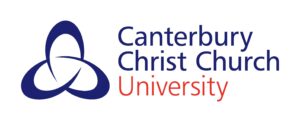- April 28, 2023

Over a period of 12 months, NHS England South East, Canterbury Christ Church University and the Florence Nightingale Foundation are supporting 10 professionals already working in the South East region who are completing this fellowship opportunity.
Felistas Nyamayaro is one of the current cohort of Clinical Education Improvement Fellows (CEIF) for 2022/23 and here she tells us about her experience to date.
Felistas is a registered mental health nurse with over 20 years’ experience of working in a variety of mental health care settings for Adults, Older Adults and Intellectual Disability Patients. She is currently working as Practice Education Facilitator in Kent and Medway NHS and Social Care Partnership Trust.
Her role has allowed her to boost her academic career and allowed her to uphold educational research next to her clinical work, a combination she feels very passionate about. She has a PGCert in Education and is currently studying her MSc in Education. At work she has made significant contribution in projects looking at the impact of nursing development programmes, recruitment and retention, she also contributes with mental health nursing modules at Greenwich University.

“As we approach the end of the delightful month of April, it’s the perfect time to reflect on the festivities it has brought along. With the days growing longer and nature coming alive, April has been a month of renewal, new beginnings, and reawakening. This month, we were also blessed with the joyful celebration of Easter, a time to come together with family and friends, and I hope you all enjoyed your holidays.
Besides embracing the spirit of hope and renewal, in this month’s blog post, I will be reflecting recent sessions where #SE_CEIF fellows shared their progress, challenges, and learnings from our respective projects.
We have now reached the 7th month of our clinical education improvement projects, and we find ourselves in the critical phase of processing and analysing data gathered from various stakeholders and literature reviews. At the beginning of this month I can say the timing of our session with our CCCU supervisors on the Framework Approach (Ritchie & Spencer, 2003) to Data Analysis using Normalisation Process Theory (NPT) could not have been better, as it provided valuable insights and guidance on how to effectively analyse and interpret the information we have collected for our respective projects.
During this crucial stage, our ability to understand the diverse perspectives and experiences of stakeholders is vital in identifying key patterns and trends within the data. The session not only equipped us with the necessary tools and techniques for data analysis, but also emphasised the importance of maintaining a rigorous and systematic approach to ensure the validity and reliability of our findings. This included steps such as transcription, familiarisation, coding, developing analytical frameworks, applying these frameworks, charting the data, and interpreting the data through themes.
Furthermore, the session highlighted the value of incorporating an iterative process in our data analysis, allowing us to continuously refine our understanding and interpretation of the data as we explore deeper into our projects. This iterative process will enable us to identify and address any gaps in our analysis, ensuring a more comprehensive understanding of the factors influencing our clinical education improvement projects.
I was delighted that the topic we explored during our session was Preceptorship Programmes, as this is the focus of my improvement project. The session provided valuable insights into the Framework Approach to Data Analysis using Normalisation Process Theory (NPT) within Preceptorship Programmes for Allied Health Professionals. By exploring this topic in depth, I gained a deeper understanding of the core elements of NPT, such as sense-making work, relational work, operational work, and appraisal work, and how they apply to the context of Preceptorship Programmes. This understanding is particularly relevant for my project, as it allowed me to recognise the key factors and processes that contribute to the successful implementation and sustainability of preceptorship programmes within healthcare settings. Furthermore, the session highlighted the potential for applying these principles not only to AHPs but also to nursing, demonstrating the versatility and broad applicability of the Framework Approach and NPT in various healthcare professions. This knowledge will prove invaluable in informing and guiding my improvement project, ultimately enhancing its effectiveness and impact on preceptorship programmes within NHS organisations.
The collaborative nature of the session also provided a supportive environment in which we could share our experiences, challenges, and successes with our peers. This exchange of ideas and insights fostered a sense of fellowship and collective learning, which can greatly benefit the ongoing progress of our projects. For me it was especially beneficial, given my visual and practical learning style. By engaging in hands-on exercises and group activities, I was able to directly experience and apply the techniques and concepts discussed during the session, which in turn helped solidify my understanding of the material.
Further into the month we had our FNF session on Co-consulting Action Learning Sets (ALS).
The learnings began with fellows completing an e-learning course on Co-consulting and then attending a practical session with Claire Henry, which set the stage for more in-depth discussions and collaborative problem-solving.
Reflecting on the co-consulting Action Learning Set session, it is clear that this collaborative approach to professional development offers a valuable platform for participants to share their experiences, challenges, and successes while working on quality improvement projects. Our practical group fostered a supportive environment where everyone felt safe to share their thoughts and feelings. This psychological safety was essential for promoting open communication and encouraging reflection.
Along with discussing challenges, fellows also shared successes and milestones achieved in their projects so far. These moments of celebration provided an opportunity for the group to reflect on the strategies that contributed to their success and to identify key learnings that could be applied to other projects.
For instance, our very own Holly Spencer shared how she is successfully exploring the implementation of the College of Radiographers’ Education and Career Framework within diagnostic radiography, helping to further embed the Framework and its recommendations into routine practice for the benefit of radiographers, service users, imaging services, and the wider profession. The group reflected on the factors that contributed to this success, such as having a key stakeholder steering group, strong leadership, effective communication, and a well-structured project plan.
The co-consulting ALS session also provided an opportunity for fellows to develop action plans to address the challenges and opportunities identified during the discussion. These action plans included specific goals, timelines, and responsibilities, which encouraged fellows to take ownership of their projects and to commit to ongoing improvement learning.
In summary, the integration of the Framework Approach to Data Analysis using Normalisation Process Theory and the Co-Consulting Action Learning Sets has proven to be highly valuable for our clinical education improvement projects. This interactive approach fosters peer-to-peer learning, promotes the development of innovative solutions, and supports the continuous improvement of clinical practice and education.
I would like to express my deepest gratitude to NHSE (SE) WT&E, our academic supervisors Chris Burton, Paula Kersten and Maria Birch from Canterbury Christ Church University, and the Florence Nightingale Foundation #TeamFNF (in this instance Claire Henry). Your unwavering support and guidance have been instrumental in our professional growth and I cannot wait to see the successful completion of this fellowship.”
References
Bion, W. R. (1994) Learning from Experience, Jason Aronson.
Edmondson, A. C., Higgins, M., Singer, S. and Weiner, J. (2016) ‘Understanding psychological safety in health care and education organizations: A comparative perspective’, Research in Human Development, United Kingdom, Taylor & Francis, vol. 13, no. 1, pp. 65–83 [Online]. DOI: 10.1080/15427609.2016.1141280.
Freeman, S. F. (2020) Psychological Containment: A Critical Leadership Success Factor [Online]. Available here.
Ritchie, J., & Spencer, L. (2003). Qualitative data analysis for applied policy research. In A. Bryman & R. G. Burgess (Eds.), Analyzing qualitative data (pp. 173-194). London: Routledge.
If you would like to find out more about the 2022-2023 CEIF cohort, please click here. Also please do follow #SE_CEIF and #TeamFNF on socials to keep up-to-date.

